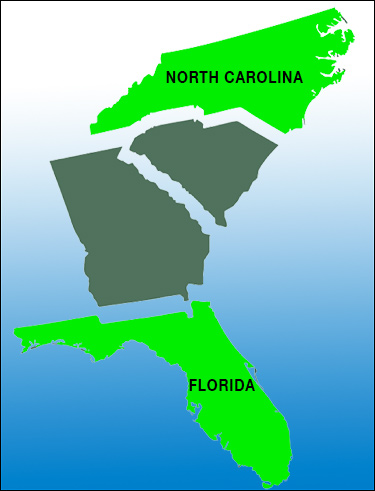By Jim Ellis — Monday, July 28, 2025
Senate
While major potential North Carolina US Senate candidates in both parties had been keeping their leaders at bay for several months about whether they would enter the open contest, we now see evolving what is likely to be the state’s general election pairing.Late last week, a report was published indicating that former Gov. Roy Cooper (D) had informed his party leaders that he will run for the Senate and is expected to make a formal declaration of candidacy this week.
Presidential daughter-in-law Lara Trump, who previously said she would decide about entering the Senate race “before Thanksgiving,” announced Thursday that she would not run, and immediately Republican National Committee chairman Michael Whatley declared his own candidacy. Just as fast, President Trump issued an endorsement for Whatley.
Thus, within this short period after long being in suspension, it appears we already have our general election pairing for one of the most important and competitive of the 2026 Senate campaigns.
For the Democrats, one potential obstacle remains. Former Rep. Wiley Nickel (D) had declared his Senate candidacy as he announced in 2023 that he would not seek a second term in the House because of what he termed an adverse redistricting map. Later, Nickel said he would step aside if Cooper decided to run but has not recently reiterated such comments. Therefore, it remains to be seen if Nickel remains in the Senate race.
The 2026 Senate race promises to be close, as are most statewide races in North Carolina. From the 2016 election through 2024, a total of 36 statewide campaigns were conducted from President to Superintendent of Public Instruction.
Republican candidates won 23 of those elections and Democrats’ 13, and two of the latter were Cooper’s close victories for Governor. Calculating the mean average for the 36 campaigns, the Republican candidates attracted 50.4 percent of the vote, while Democratic candidates recorded 48.3 percent.
Cooper won six Tar Heel State campaigns, four as Attorney General (2000 through 2012) and two for Governor. In his pair of chief executive contests, 2016 and 2020, Cooper averaged 50.2 percent. In 2016, he won with 49 percent of the vote unseating then-Gov. Pat McCrory (R), and four years later secured re-election against then-Lt. Gov. Dan Forest (R) with a 51.5 percent tally.
Michael Whatley, an attorney, was appointed RNC chairman after President Trump’s renomination in 2024. Previously, he served as chair of the North Carolina Republican Party and as a chief of staff to then-Sen. Elizabeth Dole (R-NC) among other political positions. It had been presumed that Whatley would enter the open Senate race after incumbent Sen. Thom Tillis (R) announced that he would not seek a third term. That is, presuming Ms. Trump would ultimately decide against running.
While prognosticators are giving Cooper at least a slight early edge, which is reasonable considering the Democrat has won six statewide races and the Republican has never been on the ballot, the overall statistics over the previous eight-year period as shown above, provide the Republicans with a slight cushion.
One thing is for certain: the impending Senate race will be the most expensive in North Carolina electoral history. In 2022, then-Rep. Ted Budd (R) defeated former state Supreme Court Chief Justice Cheri Beasley (D) in an open contest even though he was outspent $39 million to $16 million when comparing the two candidates’ campaign committee reports.
Outside spending, however, allowed Budd to close the gap. Republican outside group allies poured in just over $75 million into the campaign as compared to Democratic allies spending $30 million. Expect all of these financial numbers to be eclipsed in 2026.
This race is now officially on, and we can routinely expect a great deal of national attention being directed toward the Tar Heel State over the next 15 months.






